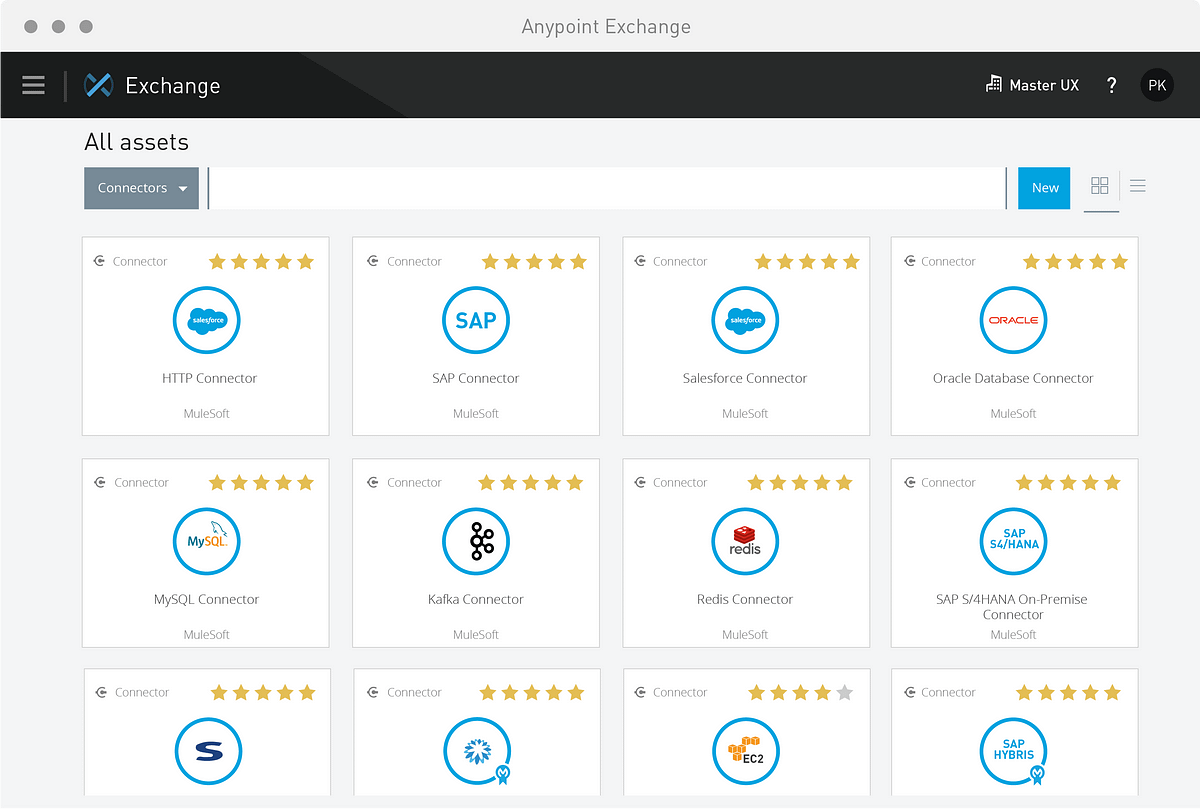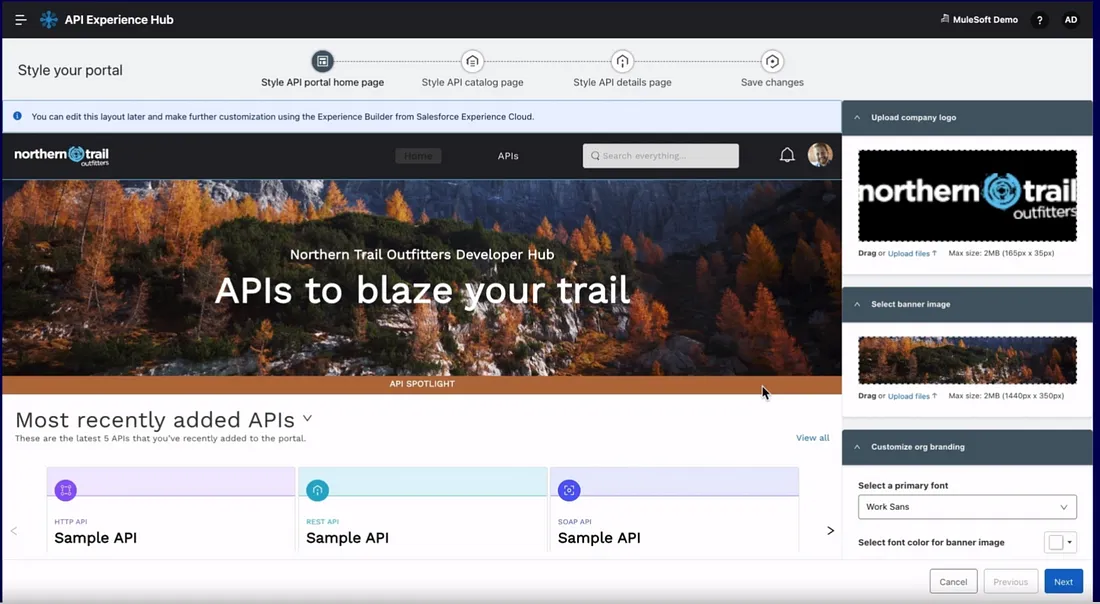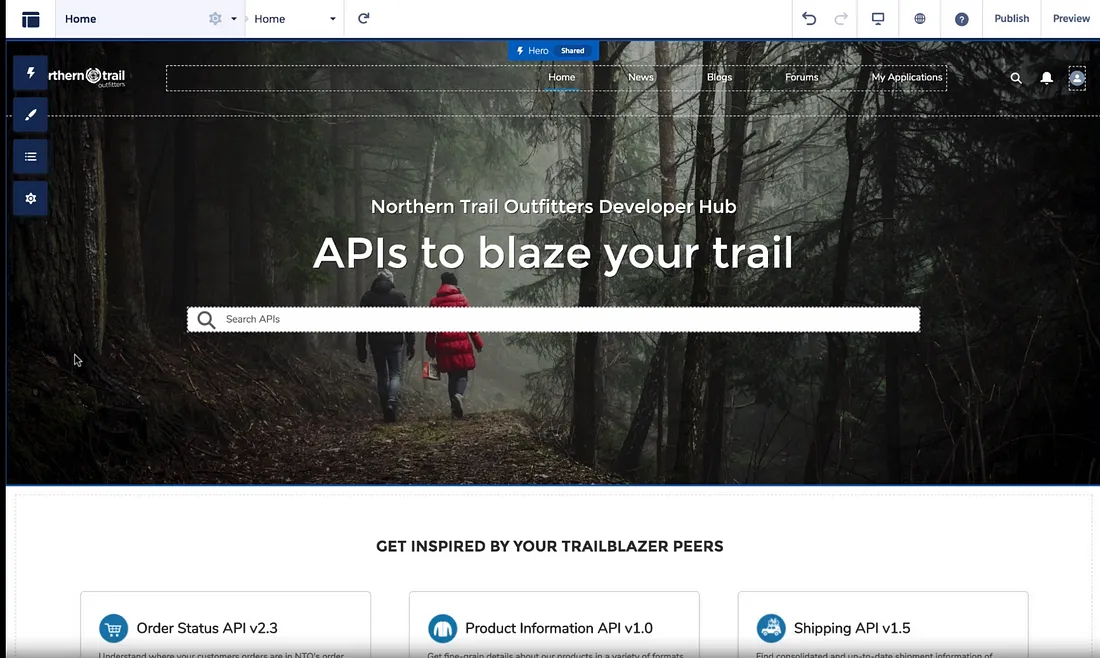MuleSoft: API Experience Hub vs. API Community Manager vs. Anypoint Exchange
This blog presents a comparison study of platforms for management, discovery, and the utilization of APIs, highlighting the differences and similarities of each.
Join the DZone community and get the full member experience.
Join For FreeIn this blog, I would like to bring out the differences between Anypoint API Experience Hub (AEH), Anypoint API Community Manager (ACM), and Anypoint Exchange and also, let you know how they are related. I will take you through the key differences and commonalities of all three platforms.
Introduction
MuleSoft offers several platforms designed to enhance the management, discovery, and utilization of APIs, each serving different aspects of API strategy and community engagement. Understanding the differences between Anypoint API Experience Hub (AEH), Anypoint API Community Manager (ACM), and Anypoint Exchange can help you determine which platform or combination of platforms will best suit your organization’s needs.
Anypoint API Experience Hub (AEH)
API Experience Hub (AEH) is designed to improve the API consumption experience by providing a comprehensive portal where developers can discover, learn about, and test APIs. It serves as a central repository and collaborative space for all stakeholders involved in the API lifecycle. It focuses on providing a customized portal (curated experience) that improves how developers interact with APIs, facilitating easier integration and adoption.
Key Features
Build personalized developer portals with clicks, not code: Use out-of-the-box templates to easily design and publish developer portals from a single place in the Anypoint Platform.
Track consumption and quality metrics: Manage API investments by observing community engagement with APIs to continuously optimize and improve performance.
Empower developers and partners to collaborate: Provide easy and self-service access to articles, FAQs, and the collective wisdom of the community to support consumers at every step.
Scale API portals and create digital marketplaces: Use advanced portal builder capabilities, powered by Salesforce Experience Cloud, to customize and scale portals with engagement, community, and forum elements. Build digital marketplaces to monetize and get more value from API investments.
Anypoint API Community Manager (ACM)
API Community Manager (ACM) is aimed at turning the API portal into a community-focused tool where API users and developers can engage, get support, and exchange ideas. It emphasizes building a strong community around an organization’s APIs. With ACM, you can build and operate communities around your APIs for developers and partners, both inside and outside of your organization, who write applications that use your APIs.
Key Features
- Out-of-the-box themes: Set up new digital experiences complete with API product documentation, news, events, blogs, forums, onboarding, and support in no time, with a prebuilt template and themes you can customize down to the pixel.
- Personalized portals: Tailor experiences by serving specific API products, news, blogs, events based on geography, referring domains, and more. Reconfigure and reuse elements to create new experiences for target partners or events, such as hackathons. Let users select their preferred language using the language picker.
- Interactive documentation: Make your consumers successful quickly by providing a searchable API product catalog and interactive documentation — complete with videos, code snippets, tutorials, and an auto-generated mocking service. Get the API console and associated API resources automatically from Anypoint Exchange.
- Forums and cases: Create a space for API consumers to engage with peers, developer evangelists, and API product teams through developer forums, chat, and support case management. Enable users to publish answers to a public knowledge base, or communicate privately.
- Engagement analytics: Measure and analyze API program metrics, track ecosystem engagement with content, and identify evangelists who actively engage peers through forums — all with preconfigured and customizable dashboards.
Anypoint Exchange
Anypoint Exchange is a curated catalog of reusable assets. APIs, API groups, API spec fragments, custom assets, examples, GraphQL APIs, and integration assets such as connectors, policies, RPA assets, rulesets, and templates are some of the types that are supported in Exchange. You can catalog (publish), share, discover, learn about, and reuse assets within your organization of developers to facilitate collaboration, boost productivity, and promote standards. You can create API developer portals, view and test APIs, simulate sending data to APIs by using the mocking service, create assets, and use API Notebooks to describe and test API functions.

Key Features
Accelerate your project delivery: Don’t start development from scratch. Accelerate delivery by leveraging 100+ OOTB APIs, examples, best practices, accelerators and much more within Anypoint Exchange and our broader ecosystem. Build upon previous projects by reusing your own assets auto-populated into Anypoint Exchange.
Build a consolidated source of truth for your APIs: Catalog APIs built by any team or anywhere in the enterprise — Anypoint Platform or otherwise — into Anypoint Exchange using developer-friendly tools.
Improve collaboration across development teams: Before implementing an API, share it with your API consumers for validation using a mocking service. Drive developers to discover assets, microservices, or governance policies and test new functionalities with ease.
Manage your assets more effectively: Automatically generate documentation and map dependencies across assets in Exchange. Create custom roles, permissions, and team structures aligned to your organization to provide varying degrees of access to view, contribute, or administer assets.
Key Differences
Core Focus
AEH is focused more on the API discovery, testing, and documentation aspect, aiming to enhance the technical interaction with APIs.
ACM focuses on building and managing a community around the APIs, emphasizing engagement and support.
Anypoint Exchange is aimed at asset sharing and discovery across a broad spectrum of integration assets.
Platform Base
AEH is a MuleSoft-specific solution tailored to API Management.
ACM leverages Salesforce Experience Cloud, making it ideal for organizations already invested in the Salesforce ecosystem.
Anypoint Exchange is one of the core components of MuleSoft’s Anypoint Platform.
Primary Users
Both AEH and ACM target API developers and consumers with a focus on improving their direct interactions and engagement.
Anypoint Exchange serves a wider audience including developers, integration specialists, and business analysts looking for any type of reusable asset — APIs, connectors, templates, examples, and other types of artifacts.
User Engagement
AEH is primarily a hub for API documentation, discovery, and collaboration tools. It helps in creating basic community features.
ACM is about creating a dynamic community for APIs which includes forums, tickets, and personalized interactions. It helps in creating advanced community features.
Anypoint Exchange being a key component of Anypoint Platform, serves as a central hub where organizations can discover, share, and manage APIs, connectors, templates, and other integration assets.
Integration Needs
AEH is not directly connected with Salesforce, but it is connected through Salesforce APIs to create an API portal within the Anypoint Platform, which is a one-time process. AEH focuses more on integrating with API management processes to provide a streamlined developer experience.
ACM integrates deeply with Salesforce, benefiting from its CRM and analytics capabilities to enhance user management and engagement analytics. ACM uses a data bridge to communicate with the Anypoint Platform. Within the Anypoint Platform, there is a connected app that allows ACM to access data such as API specs, client applications, subscriptions, etc.
Anypoint Exchange do not need integration with any external systems to create developer portals. Exchange itself provides a repository for code and APIs and helps your organization access them easily, model them, and reuse them.
Knowledge of Salesforce (For Developer Portals)
With AEH, you don’t need to learn the nitty-gritty of Salesforce. AEH reduces the burden of salesforce knowledge to get started and see value immediately by providing a simple portal creation experience. In addition, one can manage portal users and API Products through an Anypoint account directly.
ACM, which is built on Salesforce Experience Cloud, generally requires a higher level of Salesforce knowledge. Since ACM leverages many features of Salesforce, understanding Salesforce’s platform capabilities, particularly those related to the Experience Cloud and community management, is crucial.
With Anypoint Exchange, no Salesforce knowledge is required.
Launch Time
With ACM, launching an API Portal with small to medium complexity requires a couple of days. One of the reasons for this is you need to juggle between two platforms — Anypoint Platform and Salesforce Experience Cloud.
With AEH, it's reduced considerably because of a single platform with easier management. Launching an API Portal with AEH is simply a 4-step process.
With Anypoint Exchange, once your API is ready with the documentation, publishing it to Exchange is relatively quick.
Licensing
AEH requires two types of licenses:
- Salesforce: This license is required to use the Salesforce Experience Builder.
- External identity: This license is based on the number of member requests to access the portal. The current package has a minimum of 100 API access requests which require a minimum of 2000 External Identity licenses. This is required for the portal consumers to access the API portal.
A standard ACM license consists of a Salesforce Customer Community Plus Login License Unlimited Edition. It is based on the number of member logins per month.
Licensing for Anypoint Exchange, as part of Anypoint Platform, is generally structured around the broader licensing models that MuleSoft employs for its entire suite of products.
Commonalities
API Management Focus
All three platforms are fundamentally designed to enhance API management. They provide tools and features that help organizations create, manage, and share APIs efficiently.
Enhanced API Discovery
All three platforms support enhanced API discovery.
Documentation and Interactive Testing
Documentation and interactive testing are integral features across all three platforms.
AEH and Anypoint Exchange provide capabilities for API providers to publish comprehensive documentation along with interactive examples where consumers can test APIs directly in the browser. ACM integrates these features into its community portals, enhancing the user experience and facilitating easier adoption and feedback from API consumers.
Integration With Anypoint Platform
All three platforms are tightly integrated with Anypoint Platform, ensuring a seamless experience for users from API design through management, testing, and consumption.
AEH and Anypoint Exchange are directly part of the Anypoint Platform ecosystem. ACM, built on Salesforce, leverages Anypoint Platform for backend API management functionalities.
Collaboration and User Engagement
Promoting collaboration among API developers and consumers is a common theme in all three platforms.
Analytics and Monitoring
Monitoring API usage and performance is supported across all three platforms, allowing organizations to gather insights into API performance, consumption patterns, and user engagement.
Conclusion
This is just a small attempt to clear out the ambiguities around three platforms — Anypoint API Experience Hub, Anypoint API Community Manager, and Anypoint Exchange, offered by MuleSoft for Management, Discovery, and Utilization of APIs.
Hope you all find this article helpful/useful in whatever way.
Thank you for reading!! Please do not forget to like, share, and feel free to share your thoughts/comments in the comments section.
Opinions expressed by DZone contributors are their own.



Comments